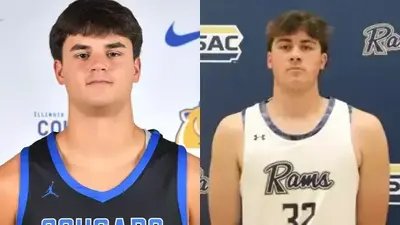The Police Department maintained a protective stance toward it own. | Contributed photo
The Police Department maintained a protective stance toward it own. | Contributed photo
When the Edgar County Watchdogs (ECW) filed a Freedom of Information Act (FOIA) request for LaSalle Police Department personnel records and was denied, improperly in ECW’s view, it filed a review request — and the chase was on.
Originally, allegations stemmed from possible policy violations within the city of LaSalle’s law enforcement division involving alleged improper sexual solicitation, but additional layers of complexity arose from several subsequent rounds of denial, which ECW said exacerbated the initial problem.
Once the state’s Attorney General Public Access Counselor (PAC) asked law enforcement officials to comply with ECW’s FOIA request, the department responded with language suggesting that the requesting party (the Watchdogs) was asking both Police Chief Robert Uranich and the city of LaSalle to “interpret” a state police report involving “speculation and conjecture,” as well as objecting to a perceived command to “create a list that does not exist.”
Although the rejoinder was “respectfully suggested,” ECW’s Kirk Allen immediately construed the reference to his alleged request for interpretation as bogus, deeming the department’s message to be evasive and at the same time, revealing.
“(Note) the selective wording,” Allen said, clarifying that he did not ask for any interpretation. “They imply that I am asking for a list … (when) I asked for… discipline records.”
The original allegations of sexual solicitation — which ECW had previously investigated in October — were laced with references to prostitution. The department quickly put the claims to bed by casting purportedly involved personnel in a category of their own, carefully terming them “non-productive officers.” Hence the material that ECW requested — the "unproductive officers" list — was denied.
That was when Allen suggested that authorities implied one or more possibilities -- that the material he sought did not exist, that it may have been turned over to State Police, and/or that certain authorities may not have wanted a “paper trail” that could be traced.
For the LaSalle Police Department to say that listing names and information would “create” a public record is “a stretch at best," Allen said.
The Police Department maintained a protective stance toward it own; one law enforcement officer even claimed that information related to the investigation had been “forwarded verbally.”
“The city of LaSalle Police Department has no copy of any written or email communication with the Illinois State Police regarding this incident,” Uranich said. “Any communications by the LaSalle Police Department in regard to any alleged incident that could be to our knowledge allegedly construed as being related to this alleged incident was verbal, to the best of my knowledge.”
To add to the intrigue, Uranich’s attorney — James McPhedran of Anthony C. Raccuglia & Associates PC — suggested in a five-page letter to Illinois Assistant Attorney General Matt Hartman that Allen’s query already had been answered in an earlier communication, saying “You are respectfully advised … that they were specifically covered … both you and Mr. Allen already have the prior public aspect of the response, and the confidential aspect is within your office.”
Allen argued that the department was fully aware that the ECW’s request for information was related directly to the original alleged solicitation matter, yet it continued to insist that it possessed no written records. In particular, Allen took issue with the department’s avoidant stance that no written records existed per se, saying that personnel conveniently disregarded the existence of videotaped evidence because the medium did not count literally as “written” material.
“What we have here is a lawyer advocating for their client and playing word games to misrepresent what is being requested and create arguments to withhold information of public interest,” Allen said. “Which is it? You have non-productive officers in your ranks or you don’t."
Predicting that Uranich and his attorney will next argue that no discipline records exist, Allen lobbed a final logical counterpoint: “If that is the case, why keep a police chief that fails to discipline known unproductive officers?”






 Alerts Sign-up
Alerts Sign-up